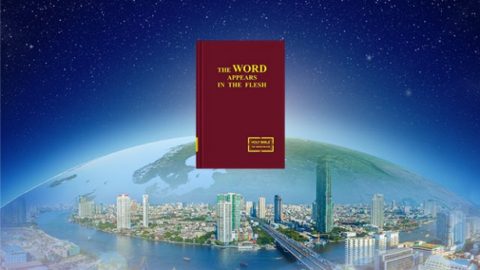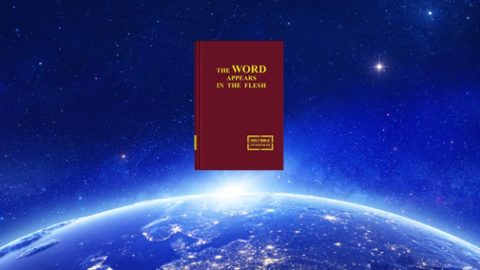7. You testify that the Lord Jesus has returned, and that He is Christ of the last days, Almighty God. But the pastors and elders of the religious world say that what you believe in is not the Lord Jesus, and that The Church of Almighty God does not belong to Christianity. Is there any credence to the words of these pastors and elders?
Relevant Words of God:
After the work of Jehovah, Jesus became flesh to do His work amongst man. His work was not carried out in isolation, but was built upon the work of Jehovah. It was work for a new age that God did after He had concluded the Age of Law. Similarly, after the work of Jesus ended, God went on with His work for the next age, because the entire management of God is always progressing forward. When the old age passes, it will be replaced by a new age, and once the old work has been completed, there will be new work to continue God’s management. This incarnation is God’s second incarnation, which follows upon Jesus’ work. Of course, this incarnation does not occur independently; it is the third stage of work after the Age of Law and the Age of Grace. Every time God initiates a new stage of work, there must always be a new beginning and it must always bring a new age. So too are there corresponding changes in the disposition of God, in the manner of His working, in the location of His work, and in His name. No wonder, then, that it is difficult for man to accept the work of God in the new age. But regardless of how He is opposed by man, God is always doing His work, and is always leading the whole of mankind forward. When Jesus came into the world of man, He ushered in the Age of Grace and ended the Age of Law. During the last days, God once more became flesh, and with this incarnation He ended the Age of Grace and ushered in the Age of Kingdom. All those who are able to accept the second incarnation of God will be led into the Age of Kingdom, and will moreover become able to personally accept the guidance of God. Though Jesus did much work among man, He only completed the redemption of all mankind and became man’s sin offering; He did not rid man of all his corrupt disposition. Fully saving man from the influence of Satan not only required Jesus to become the sin offering and bear the sins of man, but it also required God to do even greater work to rid man completely of his satanically corrupted disposition. And so, now that man has been forgiven of his sins, God has returned to the flesh to lead man into the new age, and begun the work of chastisement and judgment. This work has brought man into a higher realm. All those who submit under His dominion shall enjoy higher truth and receive greater blessings. They shall truly live in the light, and they shall gain the truth, the way, and the life.
—The Word, Vol. 1. The Appearance and Work of God. Preface
At the time that Jesus was doing His work, man’s knowledge of Him was still vague and unclear. Man always believed Him to be the son of David, and proclaimed Him to be a great prophet, the benevolent Lord who redeemed man’s sins. Some, on the strength of their faith, were healed just from touching the edge of His garment; the blind could see and even the dead could be restored to life. However, man was unable to discover the corrupt satanic disposition deeply rooted within himself, neither did he know how to cast it away. Man received much grace, such as the peace and happiness of the flesh, the faith of one member bringing blessing on an entire family, the healing of sickness, and so on. The rest were the good deeds of man and his godly appearance; if someone could live on the basis of these, they were considered an acceptable believer. Only believers of this kind could enter heaven after death, which meant that they were saved. But, in their lifetime, these people did not understand at all the way of life. All they did was to commit sins and then confess their sins in a constant cycle without any path to change their disposition: Such was the condition of man in the Age of Grace. Has man received complete salvation? No! Therefore, after that stage of work was finished, there still remained the work of judgment and chastisement. This stage is to make man pure by means of the word, and thereby give him a path to follow. This stage would not be fruitful or meaningful if it continued with the casting out of demons, for it would fail to extirpate man’s sinful nature, and man would come to a standstill at the forgiveness of his sins. Through the sin offering, man has been forgiven his sins, for the work of the crucifixion has already come to an end and God has prevailed over Satan. But the corrupt disposition of man still remaining within him, man can still sin and resist God, and God has not gained mankind. That is why in this stage of work God uses the word to expose the corrupt disposition of man, causing him to practice in accordance with the right path. This stage is more meaningful than the previous one, as well as more fruitful, for now it is the word that directly supplies man’s life and enables the disposition of man to be completely renewed; it is a much more thorough stage of work. Therefore, the incarnation in the last days has completed the significance of God’s incarnation and completely finished God’s management plan for man’s salvation.
—The Word, Vol. 1. The Appearance and Work of God. The Mystery of the Incarnation (4)
Jesus and I come from one Spirit. Even though We are unrelated in Our fleshes, Our Spirits are one; even though the content of what We do and the work that We take on are not the same, We are alike in essence; Our fleshes take different forms, but this is due to the change in era and the differing requirements of Our work; Our ministries are not alike, so the work We bring forth and the dispositions We reveal to man are also different. That is why what man sees and understands this day is unlike in the past, which is because of the change in era. For all that They are different in the gender and the form of Their fleshes, and that They were not born of the same family, still less in the same time period, Their Spirits are nonetheless one. For all that Their fleshes share neither blood nor physical kinship of any kind, it cannot be denied that They are the incarnate fleshes of God in two different time periods. That They are the incarnate fleshes of God is an irrefutable truth, even though They are not of the same bloodline and do not share a common human language (one was a male who spoke the language of the Jews and the other a female who only speaks Chinese). It is for these reasons that They have lived in different countries to do the work that it behooves each one to do, and in different time periods too. Despite the fact that They are the same Spirit, possessed of the same essence, there are no absolute similarities between the outward shells of Their fleshes. All They share is the same humanity, but as far as external appearance of Their fleshes and the circumstances of Their birth are concerned, They are not alike. These things have no impact on Their respective work or on the knowledge that man has of Them, for, in the final analysis, They are the same Spirit and none can separate Them. Even though They are not related by blood, Their entire beings are in the charge of Their Spirits, which allocate to Them different work in different time periods, and Their fleshes to different bloodlines. The Spirit of Jehovah is not the father of the Spirit of Jesus, and the Spirit of Jesus is not the son of the Spirit of Jehovah: They are one and the same Spirit. Similarly, the incarnate God of today and Jesus are not related by blood, but They are one, this is because Their Spirits are one. God can do the work of mercy and lovingkindness, as well as that of the righteous judgment and of chastisement of man, and that of calling down curses on man; and in the end, He can do the work of destroying the world and punishing the wicked. Does He not do all of this Himself? Is this not the omnipotence of God?
—The Word, Vol. 1. The Appearance and Work of God. The Two Incarnations Complete the Significance of the Incarnation
To people, the work of the second incarnate flesh seems utterly unlike that of the first, so much so that the two seem to have nothing in common, and nothing of the first’s work can be seen this time. Though the work of the second incarnate flesh is different from the first, that does not prove that Their source is not one and the same. Whether Their source is the same depends on the nature of the work done by the fleshes, and not on Their outer shells. During the three stages of His work, God has been incarnated twice, and both times the work of God incarnate inaugurates a new age, ushers in a new work; the incarnations complement each other. It is impossible for human eyes to tell that the two fleshes actually come from the same source. It goes without saying that this is beyond the capacity of the human eye or the human mind. But in Their essence, They are the same, for Their work originates from the same Spirit. Whether the two incarnate fleshes arise from the same source cannot be judged by the era and the place in which They were born, or other such factors, but by the divine work expressed by Them. The second incarnate flesh does not perform any of the work that Jesus did, for God’s work does not adhere to convention, but opens up a new path each time. The second incarnate flesh does not aim to deepen or solidify the impression of the first flesh in people’s minds, but to complement and perfect it, to deepen man’s knowledge of God, to break all the rules that exist in people’s hearts, and to wipe out the fallacious images of God in their hearts. It can be said that no individual stage of God’s own work can give man a complete knowledge of Him; each gives only a part, not the whole. Though God has expressed His disposition in full, because of man’s limited faculties of understanding, his knowledge of God still remains incomplete. It is impossible, using human language, to convey the entirety of God’s disposition; moreover, how can a single stage of His work fully express God? He works in the flesh under the cover of His normal humanity, and one can only know Him by the expressions of His divinity, not by His bodily shell. God comes into the flesh to allow man to know Him by means of His various work, and no two stages of His work are alike. Only in this way can man have a full knowledge of God’s work in the flesh, not confined to one single facet. Though the work of the two incarnate fleshes is different, the essence of the fleshes, and the source of Their work, are identical; it is just that They exist to perform two different stages of the work, and arise in two different ages. No matter what, God’s incarnate fleshes share the same essence and the same origin—this is a truth no one can deny.
—The Word, Vol. 1. The Appearance and Work of God. The Essence of the Flesh Inhabited by God




